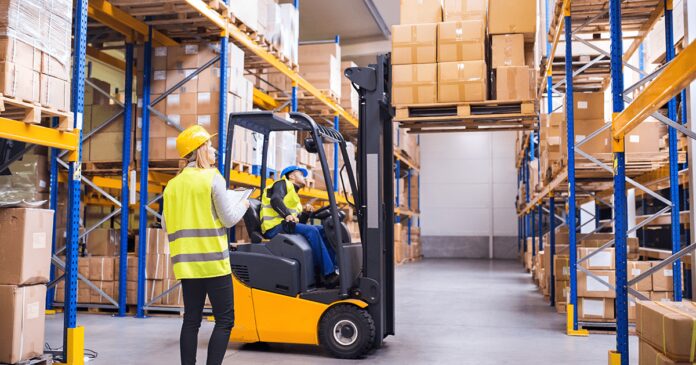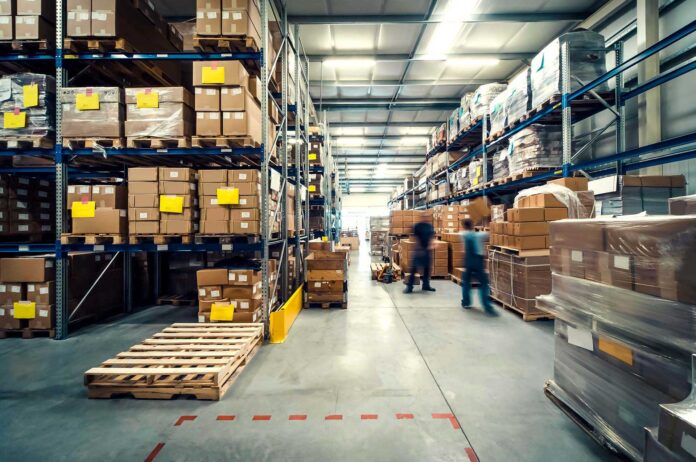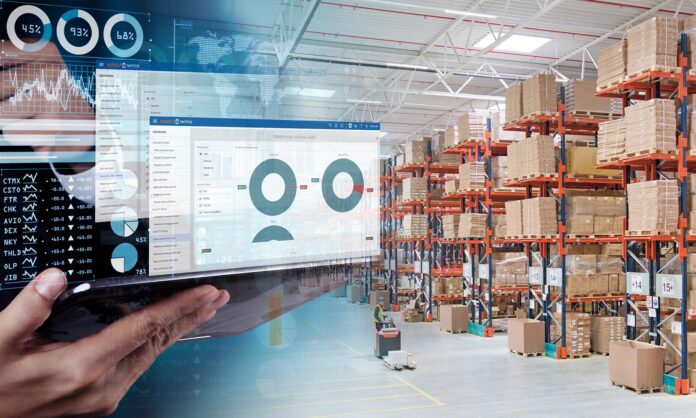
Warehouse logistics plays a critical role in modern supply chain management. Whether you’re running a small business or a large enterprise, understanding the ins and outs of warehouse logistics is key to improving efficiency, reducing costs, and keeping customers happy.
This guide will explore warehouse logistics, the benefits of optimizing operations, and the tools to elevate your logistics.
What Is Warehouse Logistics?

Warehouse logistics is the planning, organization, and management of all processes in a warehouse. It involves:
- inventory storage
- order fulfillment
- transportation management
- technologies used to streamline these operations
Efficient warehouse logistics ensures that products move smoothly from suppliers to customers while minimizing delays and errors. Logistics affects every step of the warehouse process. It handles shipments, stock, and order shipping.
The Importance of Warehouse Logistics
Warehouse logistics is vital for supply chain efficiency. It affects inventory management and customer satisfaction. Optimizing logistics can cut costs, boost productivity, and ensure timely deliveries.
Enhances Operational Efficiency
Proper warehouse logistics minimize wasted time and effort. By streamlining processes, businesses can reduce delays and improve the speed of operations. For example, efficient inventory management makes products easy to access. This saves time when picking orders.
Reduces Costs
Optimized logistics can cut unnecessary expenses. Every logistics improvement helps your bottom line. It reduces excess inventory and shipping errors. Proper layout and storage solutions can also reduce labor costs by making tasks simpler and faster for employees.
Improves Customer Satisfaction
Customers expect their orders to arrive quickly and accurately. Strong warehouse logistics ensure timely deliveries and fewer errors. This leads to better customer experiences and higher satisfaction.
Supports Scalability
As businesses grow, warehouse operations often become more complex. Good logistics can handle higher order volumes and a wider product range. It must do this without losing efficiency or quality.
Key Components of Warehouse Logistics

Warehouse logistics are key to efficient operations. They ensure smooth workflows and timely deliveries. By mastering these elements, businesses can streamline processes, cut costs, and boost performance.
Inventory Management
Managing inventory is at the heart of warehouse logistics. This involves tracking stock levels, organizing products efficiently, and ensuring inventory accuracy. Modern systems often use barcode scanners, RFID, or inventory software to do this.
Warehouse Layout and Design
The physical layout of a warehouse significantly impacts efficiency. Good warehouse design maximizes space and cuts the time employees spend finding and picking items. Strategies like slotting optimization and categorizing products by demand can boost productivity.
Order Fulfillment
Order fulfillment refers to the process of picking, packing, and shipping items to customers. Speed and accuracy are essential here. Technologies like automated picking systems and 3PL software can help streamline order fulfillment.
Transportation and Shipping
Warehouse logistics doesn’t end at the warehouse door. Coordinating with carriers and managing shipping schedules is vital for on-time deliveries. Real-time tracking and route optimization software can enhance delivery efficiency.
Technology and Automation
Logistics technology plays a central role in modern warehouse logistics. Tech solutions, from WMS to automated picking robots, help businesses manage complexity and scale.
Common Challenges in Warehouse Logistics

Even with a solid strategy, warehouse logistics can face challenges. Here’s how to identify and address some of the most common issues:
Inventory Inaccuracies
Discrepancies between actual stock and recorded levels can disrupt operations. Regular cycle counts and reliable inventory management software are key to addressing this issue.
Inefficient Layout
A poorly designed warehouse layout can slow down operations. Review your layout periodically and adjust based on order trends and product demands.
High Operational Costs
Labor, storage, and transportation costs can spiral if not managed effectively. Investing in automation and tools like 3PL software can help reduce these costs.
Demand Fluctuations
Seasonal demand spikes or unpredictable order patterns can overwhelm your logistics. Good forecasting and scalable solutions can help. These include temporary storage and flexible labor.
Best Practices for Warehouse Logistics
Best practices in warehouse logistics are key. They keep operations smooth and efficient. These strategies help businesses. They boost productivity, cut errors, and adapt to changing supply chain demands.
Prioritize Employee Training
Well-trained employees are essential for effective logistics. Regular training keeps staff up to date on new technologies and processes. This helps them perform tasks efficiently and accurately.
Invest in Technology
From Warehouse Management Systems (WMS) to automated systems, technology is a must for modern warehouses. Choosing the right tools, and scaling them as your business grows, can streamline processes. It can reduce errors and boost productivity.
Focus on Safety
Warehouse safety is a crucial but often overlooked aspect of logistics. To ensure a safe workplace, we must: implement warehouse safety protocols, provide equipment, and conduct regular audits. This will minimize accidents and downtime.
Monitor Key Metrics
It’s critical to track metrics like order accuracy, cycle times, and inventory turnover. They measure the effectiveness of warehouse operations. Use these insights to find areas for improvement. Then, fine-tune processes and maintain high performance.
Collaborate with Partners
Strong ties with suppliers, carriers, and logistics providers improve your supply chain’s efficiency. Transparent communication and collaboration are vital. They ensure smooth operations and quick responses to issues.
How to Start Optimizing Your Warehouse Logistics

Optimizing warehouse logistics is essential for improving efficiency and maintaining a competitive edge in today’s fast-paced supply chains. By following a structured approach, businesses can identify weaknesses, implement effective solutions, and enhance overall performance.
Step 1: Assess Your Current Operations
Identify bottlenecks, inefficiencies, and areas for improvement in your logistics processes.
Step 2: Set Clear Goals
Determine what you want to achieve, whether it’s reducing costs, speeding up order fulfillment, or improving accuracy.
Step 3: Choose the Right Tools
Invest in technology and systems that fit your goals, such as WMS or 3PL software.
Step 4: Train Your Team
Ensure that employees understand how to use new tools and follow updated processes.
Step 5: Monitor and Adjust
Regularly review performance metrics and make adjustments to keep operations running smoothly.
The Role of Outsourcing in Warehouse Logistics

For many businesses, outsourcing some or all logistics operations can be a smart move. Third-party logistics providers (3PLs) specialize in logistics. They manage everything from warehousing to transport.
3PL software lets businesses monitor outsourced logistics in real-time. It helps them with inventory control, streamline their operations, and integrate in-house and external processes.
Mastering Warehouse Logistics
Warehouse logistics is the backbone of efficient supply chain management. To compete in a tough market, businesses must streamline processes, use 3PL software, and focus on customers.
If you are new to logistics or want to improve, commit to continuous improvement. Make warehouse logistics a strength, not a challenge.
Got questions? We’ve got answers! Check out our blog for loads of interesting and helpful content today!





